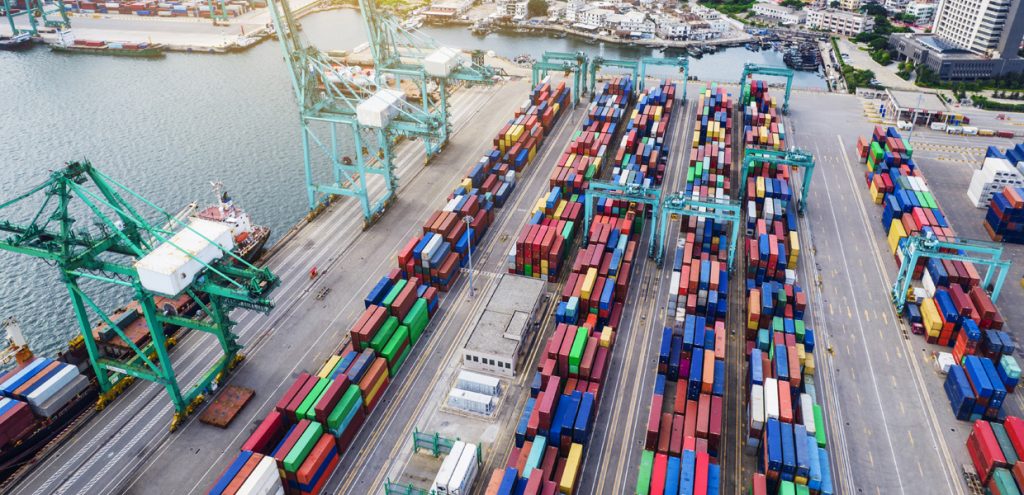Shipping delays can be very frustrating as they can result in increased operational costs, reduced stock, and unhappy customers. Although many freight forwarders strive to anticipate and avoid shipping delays, there are factors that are simply out of their control.
A professional and experienced freight forwarder will often update their clients regarding potential delays and will provide alternative solutions, if possible, to lessen the impact of the delay. With all this in mind, there are still steps you can take to help minimize the risk of delays, which we will cover in this article.
Let’s take a look at the top 8 reasons why your shipments can be delayed and how you can help minimize the risk:
1. Providing incorrect documentation
Providing documentation with potential errors or providing incorrect documentation can negatively impact the shipping process from start to finish. Most freight forwarding companies will provide you with a list of documents you will need and may even assist with compiling or filling in the documents.
Here are a few examples of the types of delays you can experience as a result of providing incorrect documentation:
- Clearance delays: If shipping documents are missing, incomplete, or contain errors, then delays may occur during the customs clearing process. For example, if an invoice value is incorrect, or the description of your cargo is inaccurate, customs officials may require additional documentation or clarification.
- Billing or payment issues: If an invoice for a shipment contains any errors or is potentially missing information, the recipient may be unable to process until the documents have been rectified. This delay in processing a payment can delay the release of the shipment.
- Compliance issues: If the documents for a particular shipment contain errors that violate trade regulations or customs laws, the shipment may be held or rejected. This can lead to additional costs or penalties and will require the shipper to resolve the errors and resubmit the documentation.
- Carrier delays: If the bill of lading documents contains any errors or is not handed over on time, the carrier may be unable to schedule pick-up or delivery of your cargo. This may lead to delays and additional costs if the carrier needs to make additional attempts to deliver or pick-up your cargo.
Therefore, it is important that your shipping documentation is accurate and complete to avoid potential delays. You can do this by verifying the accuracy of the shipping information, double-check all documents before submitting them to the relevant parties, and working with an experienced logistics partner who can help you during this process.
2. Peak or holiday season
During retail peak seasons and holidays, the volume of shipments increases dramatically, which leads to shipping delays and cost fluctuations. Peak seasons are one of the top reasons behind shipping delays, as it tends to put added pressure on an already volatile supply chain and logistics network. One way logistics partners and retailers avoid peak season delays is to ship their cargo in smaller batches and to ship them in advance.
3. Weather-related issues
This is one of the unavoidable causes of shipping delays. Extreme or bad weather conditions negatively impacts the movement of freight across all modes of transport (air, sea, road, and rail). This particularly rings true for ships and airlines when bad weather creates visibility issues along coastal lines and airports.
4. Customs delays
Cargo that is being transported internationally may be delayed by customs officials when inspecting the contents of the shipment. Here are some examples of customs delays that can occur:
- Inspection delays: When cargo is being shipped internationally, it may undergo customs inspection, which can result in delays. These inspections typically take place if a shipment contains cargo that is restricted, prohibited, or requires special documentation.
- Documentation errors: Any errors identified on shipping documents such as invoices, bill of lading, or customs paperwork can cause delays when being reviewed by customs officials.
- Duty and tax issues: Cargo that is subject to customs duties and taxes may also be delayed if there are issues with payment or during the valuation process. An example of this could be if a shipper does not provide correct documentation that proves if said goods are exempt from duties and taxes, causing customs officials to hold the goods for further investigation.
- Quarantine inspections: When a shipment contains live plants or animals, or products made from them, it may be subject to quarantine inspections to ensure that they are free from pests and diseases. With inspection times fluctuating constantly, delays in delivery should be anticipated.
- Security screenings: When cargo is being transported to high-risk countries, or contains cargo considered to be sensitive or dangerous, customs officials may perform additional security screenings. These security screenings can be extensive and time-consuming, and therefore delays can occur.
Customs processes can vary from country to country, with varying levels of complexity. Therefore, it’s always advisable to work with an experienced customs broker or logistics partner that can help navigate the customs process and minimise the risk of delays.
5. Carrier capacity
If a carrier does not have enough capacity to handle a shipment, then delays may occur. Carrier capacity can be affected during peak seasons when there is an increase in supply demand. Working closely with a logistics partner can help you plan for any equipment shortages required to handle your cargo. You can also ensure that all your permits are cleared ahead of time, thus reducing wait times after the cargo is offloaded.
6. Mechanical issues:
Should a carrier have a limited number of vehicles or loading equipment which encounters mechanical issues, this can impact the time it will take to deliver the cargo. We recommend using a carrier that ensures fast solutions in an event that their equipment suffers from a mechanical malfunction.
7. Global events
This is one of the unavoidable causes of shipping delays. When unforeseen events occur such as COVID-19, Durban civil unrest, coastal flooding, the Russia-Ukraine war, these will affect the flow of international shipping which in turn will affect delivery time. Most logistics partners are clued in on recent global events and have strategies and solutions in place to make transportation less stressful for their clients.
8. Transportation disruptions
This is one of the unavoidable causes of shipping delays. Shipments can be delayed in the event of strikes, road closures, accidents, and hijackings. These disruptions to the transportation routes can drastically impact the supply chain but can also lead to delivery delays.
Conclusion
Delays when coming to the transportation of your cargo may not be entirely avoidable, but experienced logistics partners can help you mitigate their impact on your business. As you work with your logistics partner to get a handle or work-around possible below, remember to keep your customers updated on the status of their delivery to reduce the risk of dissatisfied clients.
If you’re looking to transport your cargo from A-B consider M6T, with innovative freight forwarding and customs clearing solutions and a dedicated team to help you every step of the way!



